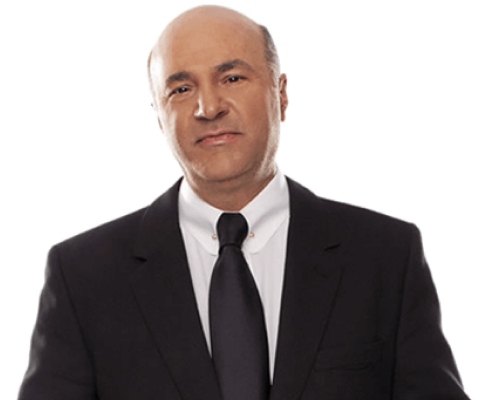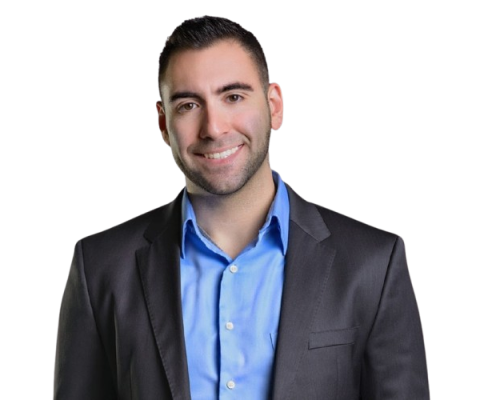How Will a Trademark Examiner Examine My Trademark Application?
An Important Step Trademarking Your Brand: Waiting on a Trademark Examiner
How much does it cost to apply for a trademark? One of the major assumptions made in that projection is whether or not the trademark is accepted the first time through. If you have to refile, those application fees can add up quickly if you need to reapply. If you want to capitalize trademark costs when trademarking your brand you want to make sure it gets accepted the first time.
When you file your trademark application, the first thing that's going to happen with it is... nothing. It's just going to sit there for several months. It's for about 8 months in Canada and 4 months in the U.S., depending on a number of factors and complications that can often be subjective.
And then it will get assigned to a trademark examiner. Basically, it is someone at the Trademarks Office who is called a trademark examiner who will decide whether or not you’ll be trademarking your brand.
Your application will be assigned to them, they will look at it. And they will look at it through the prism of their level of knowledge of trademark law, and it varies: some of them are really good, and some of them, unfortunately, are not.
They're also going to look at your trademark application through the prism of their level of understanding of your industry. If you have a common industry like clothing, it's all clear. But if you have something very sophisticated sometimes it's very important who the application is going to get to, because some examiners will understand what makes you different from your competition and some of them won't. And this is actually very important.
One Example Situation: Challenges Trademarking Your Brand
This story is an example of the kinds of challenges that can come up when trademarking your brand.
I am going to tell you a story. We had a client; we filed 5 trademarks for them. The trademark applications were almost identical, the only difference was the trademarks themselves were different. And it so happens that 3 of these applications ended up on the desk of one trademark examiner, and two of them ended up on the desk of another.
And our client was in the telecommunications services field. So the first examiner, the one who got the 3 applications, they were very happy with everything, they approved the applications right away, with no problems, no questions asked. The second examiner was giving us hell.
The trademarks were ok, it was the list of products and services that they were not happy with. They said it wasn't specific enough. And the phrase that they were particularly annoyed by was, "transmission of data over the Internet".
And the examiner goes, "What kind of data?"
We're like, "Any data!"
They go, "No, no it's not specific enough."
So we changed that to "transmission of images, text, video, multimedia and other content over the Internet."
Several months later, we get another office action from the same examiner saying that it was still not specific enough. "What is the text about? What are the videos about?"
I was like, "Are you kidding me? Why are you asking us all these questions? It does not make any sense! The other examiner who saw the same thing was ok with that."
And the trademark examiner said, "I don't care what the other examiner said, I don't understand what the text is about. And you need to specify that."
How Expertise Can Resolve This Situation and Capitalize Trademark Costs
So we realized that we can't argue with that person, because it was a completely unreasonable request. So what we did is we wrote a letter to the Trademarks Office and asked, almost begged, for the 2 trademark applications to be sent to the same examiner who just approved 3 other applications.
And we were lucky enough that we had more than one, and so they agreed, and those applications were approved, and the client's trademarks are now registered.
This only shows how important it is for the trademark examiner to understand what your industry is. Because if the examiner has no idea what transmission of data over the internet is, they may also not know anything about your product or service. So it is very subjective.
How an Examiner Helps Trademarking Your Brand
And the other thing to look for when capitalizing trademark costs, I said there are three things that a trademark examiner brings with them to the examination process. So it is knowledge of the law, knowledge of your industry, and the third one is just basically their personality. It can depend on the individual examiner assigned to the case.
Some of them are nice and try to be helpful, they're going to help you every step of the way and they're going to suggest things on how to make this work. And some of them are just being stubborn jerks, for lack of a better term. Sometimes we just get into these unreasonable arguments that do not make any sense, we can spend hours and hours and hours trying to convince them, and show them a common-sense approach, and it still does not work.
So there is a lot of subjectivity, that's why there is never 100% certainty as to whether your trademark is going to go through. Even if we can’t guarantee 100% in getting approved, we're still going to offer you a 100% money-back guarantee (if we think that the likelihood of objections is relatively low.) But it does not mean that we're 100% certain that the trademark examiner on the other side is going to approve that.
What Examiners Look For in Trademark Applications and Capitalizing Trademark Costs
So that was the first part of the answer. The second part of the answer is that these are the two things that they are going to look at in your trademark application. First of all, they're going to look at whether your trademark application meets formal requirements. Does the application have all the proper fields filled out, is the trademark not descriptive, is the list of products and services specific enough, all of those things that pertain just to your trademark in a vacuum, as if there were no other trademarks there at all? That's the first part, the formalities.
The second part of what they're going to look at is whether or not your trademark is confusingly similar to any other previously filed and registered trademarks. And again, there is a lot of subjectivity that goes in there. Because when they are comparing your trademark with somebody else's trademark, they need to understand what the industry is like.
They need to understand whether somebody who is a gamer, for example, let's say we have a brand name for a software gaming company, and let's say that name is confusingly similar to another name of a company that makes software that's only used in the healthcare industry.
How likely is that for somebody who is just a gamer that they would know about and confuse this brand for the brand of the healthcare company's brand? And that depends on how well the trademark examiner understands both industries.
So there is a lot of subjectivity on both sides of trademarking your brand. Keeping that subjectivity in mind is important when going through the process of submitting, and sometimes resubmitting, a trademark application.
So to wrap this up they will look at 2 things: whether there are formalities in order and if there are any other trademarks previously filed or registered that would not allow them to approve your mark. If the road is clear, they will approve it.
The Importance of Communication and Perseverance in Trademarking Your Brand
And that's really what our job is, to communicate with them. Well, the first step of our job is to attempt to draft your application so that they say, "Yes, it's a perfect application, we are happy, we approve it right away."
Ideally, more applications would be processed quickly this way. Unfortunately, it doesn't happen very often. Not because we don't know what we're doing, we've filed hundreds and hundreds of trademarks, I have people who work for me, who have filed thousands and thousands of trademarks. So we do know what we're doing, it's just that there's this level of subjectivity.
How much does it cost to apply for a trademark? We’ll do everything we can to make sure it’s the lowest amount possible by getting it approved the first time if at all possible. So the first thing we do is try to file a trademark so that it goes through and gets approved right away.
And if it doesn't, then our job is to keep at it, and argue with them, and fix the application, and tweak the application, and do all those things to make sure that the brand that you entrusted us with gets registered, and that you have something that you could hang on your wall in a frame and say, "This brand is mine!" We do everything we can to make sure trademarking your brand gets done.












